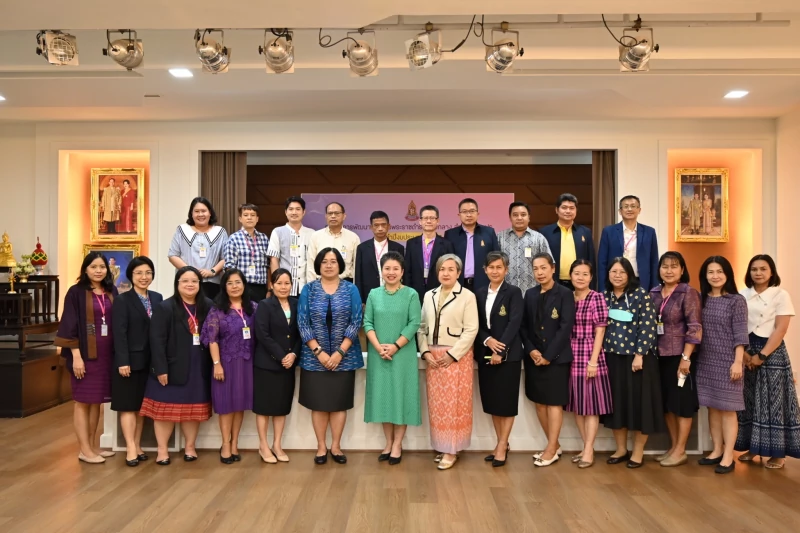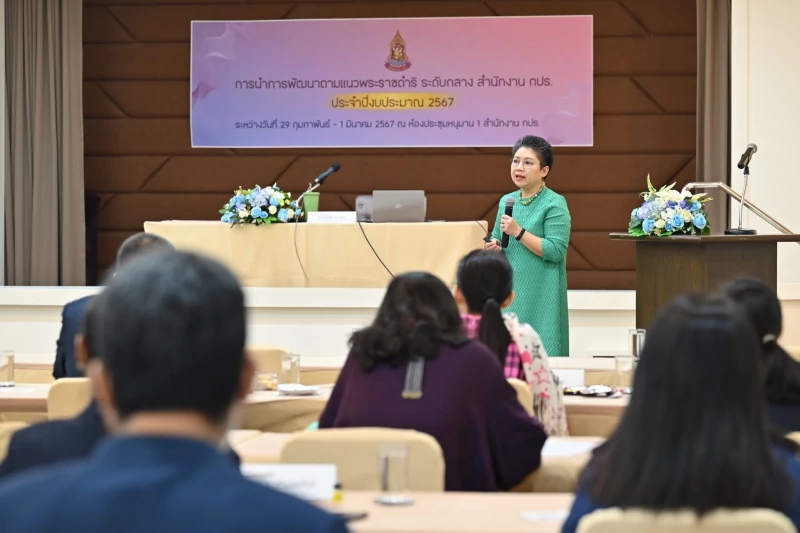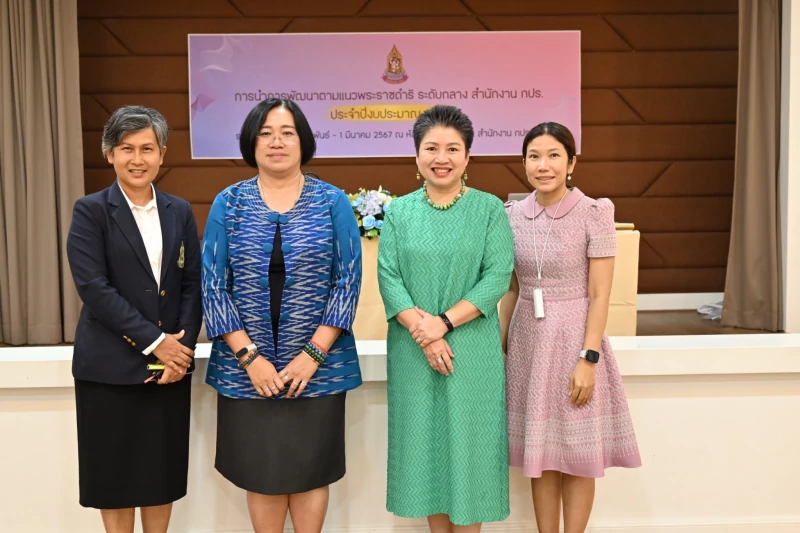01 March 2024
Bangchak Executive Shares Experience at the Office of the Royal Development Projects Training for Mid-Level Executives 2024

Gloyta Nathalang, Acting Senior Executive Vice President, Sustainability Management and Corporate Communications, was a guest speaker on the topic “Bangchak Group: Balance for a Sustainable World through ESG” to the participants of the training program on the implementation of royal-initiated development projects (mid-level) of the Office of the Royal Development Projects Board (Office of the RDPB) organized by Office of the RDPB. Pichayada Hassapak, Deputy Secretary-General of the RDPB, warmly welcomed Gloyta and participated in the session.
Gloyta emphasized the importance of maintaining various balances, which are fundamental principles of Bangchak's business conduct. These include the balance between the “value” of business operations and upholding environmental and social “virtues,” the balance between the three aspects of sustainable business, namely, beneficial to the environment, responsible to society, and governance (ESG), and the balance of the Energy Trilemma, consisting of Energy Security, Energy Affordability, and Environmental Sustainability. Bangchak incorporated the Sufficiency Economy Philosophy of His Majesty King Bhumibol Adulyadej the Great as a guiding principle of the middle path and caution, emphasizing the importance of moderation, reasonableness, self-immunity, and the conditions of knowledge and morality. At the same time, Bangchak can accommodate the UNSDGs and consider all three dimensions of responsible business (ESG), allowing the company to conduct sustainable business and serve as an organization that creates value and benefit for its stakeholders and society. Moreover, Gloyta mentioned the company’s business development and transformation, adapting to global situations and changes. Bangchak had transformed itself from its initial business as a refinery and service station to a leading energy conglomeration across multiple continents encompassing upstream and future energy businesses. Bangchak’s example provided a concept to participants in exploring new opportunities to carry out their assigned missions to the highest effectiveness and efficiency amidst the rapidly changing modern global landscape.





